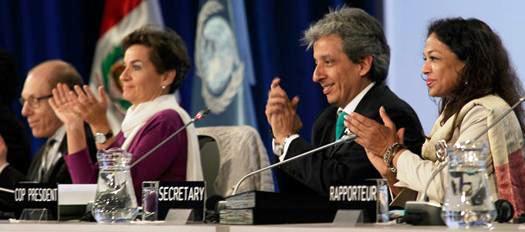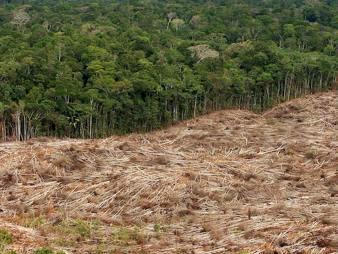London / Washington – The World Resources Institute (WRI) has released for the first time in an accessible format maps for all Roundtable on Sustainable Palm Oil (RSPO) certified palm oil concessions. WRI collaborated with RSPO to release the maps whose area accounts for about 12% of total global palm oil production in 2012. The maps, released on June 4 at an RSPO Roundtable in London, are hosted on WRI’s new Global Forest Watch Commodities (GFW-Commodities) platform.
The concession maps show exactly where RSPO certified palm oil is produced and together with other data in the Global Forest Watch (GFW) platform will empower palm oil buyers and suppliers to make better decisions that support sustainable palm oil production while protecting forests.

The maps will be accessible through GFW-Commodities, an online platform that empowers companies to assess the impact of key commodities on forests using the latest and most powerful data. GFW-Commodities builds on the groundbreaking GFW platform, a dynamic online forest monitoring and alert system empowering people everywhere to better manage forests. Recently launched by WRI with over 40 partners, GFW unites satellite technology, open data, and crowdsourcing to guarantee access to timely and reliable information about forests. GFW-Commodities is now in beta development and seeking road testers among companies who buy and sell major commodities that impact forests.
“We are starting to see a remarkable shift as new technology is encouraging companies to share information and work collaboratively to improve forest management. The RSPO and its member companies are now leading the palm oil industry towards greater transparency,” said Dr. Andrew Steer, President & CEO, WRI. “The fire and haze crises in Southeast Asia over the past year have generated far greater public demand for data about where palm oil companies are operating and who is responsible for managing the land. We are very pleased to be working with RSPO to bring unprecedented levels of transparency to this space.”
The RSPO certified maps encompass over 1.6 million hectares of palm oil concessions across five countries, including Indonesia, Malaysia, Cambodia, Papua New Guinea and Brazil. The areas account for more than six million tons of annual palm oil production from 134 mills, accounting for about 12% of total global palm oil production in 2012. The maps are updated as of May 2013 and are available for viewing on the GFW-Commodities website.
The release of the RSPO maps is a milestone on the road to even greater transparency. By September 2014, the RSPO expects maps from all its member companies for their global palm oil operations to be made available, including both certified and non-certified areas. WRI anticipates these to be available publicly through GFW-Commodities by late 2014.
“Combining RSPO data with the power of Global Forest Watch marks a new era of transparency for the palm oil sector,” said Darrel Webber, Secretary General of the RSPO. “By releasing maps showing all certified palm oil plantations, RSPO member companies are inviting business partners, governments, and the public to ensure their operations protect forests and communities where palm oil is produced.”
Palm oil is the world’s most widely consumed vegetable oil. In many major markets, including Europe and the U.S., palm oil can be found in about half of all packaged consumer products, including food products and cosmetics. In some cases, oil palm cultivation has led to tropical deforestation and conflict with local communities. The RSPO works to make palm oil more sustainable through certification and by creating a dialogue between oil palm growers, traders, brand manufacturers, retailers, banks, and leading NGOs, including WRI.
Source: WRI.















